Graham Reid | | 10 min read
Bernie Griffen and the Thin Men: Burial Ground
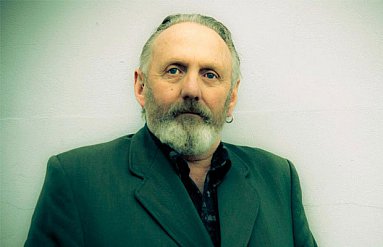
Bernie Griffen lets out a wheezing laugh when I ask him if he's in decent health these days.
He's 63, has lived hard and by his own admission not spared himself sometimes through drugs, self-doubt and damaging choices.
“Well I've got emphysema,” he says.
“I had an accident and my lungs got burned, but I also keep on
smoking and don't do myself any favours. I'm quite self-destructive
in many ways. I give up smoking for long periods and my voice
improves a lot.”
So not jogging then?
“Fuck jogging, I even sit on a stool at shows,” he laughs. “But it's good being 63.”
After the life he's had – as he acknowledges in this lengthy conversation – it's probably good just being above ground.
Griffen has become something of a late-in-life senior statesmen in New Zealand alt.country for running the roots label Global Routes, his shows with the Grifters, hosting the long-running Border Radio show on 95bFM and the Gunslinger's Ball concerts he organises.
Eventually he found the time and confidence to record an album with the Grifters, 2011's Everything So Far, and now another with his new band the Thin Men.
It's called Salvation and as he says, “that's
the way I feel about music and my life to a large extent, I've been
blessed.”
And we might add, sometimes extremely lucky to still
be here.
The past five years have been quite
remarkable in the life of Bernie Griffen, do you feel you've had this
late-in-life reboot?
Yeah, sometimes it feels like a dream.
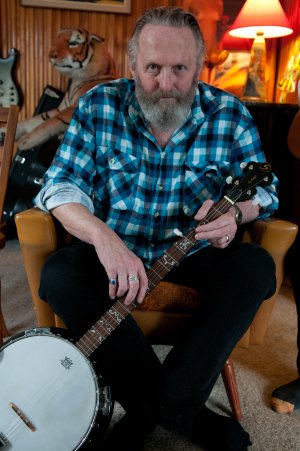 When you look back do you trace this
back to any special moments or markers where you thought, 'This is
what I need to do'?
When you look back do you trace this
back to any special moments or markers where you thought, 'This is
what I need to do'?
I do actually. I guess it was '83 when my daughter was born. I'd been working on fishing boats for a long time and I came home because I just couldn't be away anymore with two kids and a partner. So I came back and started writing songs for the kids.
I'd always done it but never felt I had anything to say particularly and I'd always been terrified, and I'm still terrified every show. But I've put on this suit of armour in the past 10 years to be the performer and songwriter that I am now.
I started doing songwriter nights at the Java Jive and [the Gluepot] Corner Bar and I felt really stripped of my confidence. I was a drug addict for a long time and that was partly to do with my self-esteem and I was always protecting myself from the world. I was over-sensitive.
So when I started to play – and I'd wanted to be a musicians since I was a kid and played a lot of folk music live in my teens – but by the time I was 20 I just couldn't do it anymore because I felt too exposed. It was probably some kind of mental illness at that time. In a way the drugs helped me out and kept me alive.
I cleaned up in '87, nearly 26 years ago, and it was a few years into my recovery that I started to write songs.
I wanted to be in the music industry and I started Global Routes. In the Eighties I'd built a studio in Anzac Ave with Terry King [Progressive Music Studios] and I played in bands, the Gorilla Biscuits and the Pleasure Boys, but I was always a backing guy . . . pushing quite hard from behind was my memory of it.
But I always covered my fears with alcohol or narcotics, so when I started to write and doing the songwriter nights I thought I just had to keep going this time.
And I kept going until I felt better about myself. The belief in myself didn't come from me but from other people. I had to stop listening to my own head which was my destructive place. It's changed enormously of course in that 26 years.
I'd started Global Routes in '97 with Marty [O'Donnell] and Chris [Hart] at Real Groovy and I got stuck into distribution and supporting local music, but I was always doing it for somebody else, helping someone else get started.
I had a little band called Flaming Pearls playing my songs and we didn't do anything particularly, just a rehearsal band and played a few friendly shows around the place. But in 2006 when Global Routes didn't look so good anymore with onset of digital music . . .
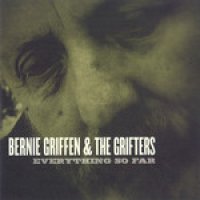 Actually there was another situation, a
friend of mine died in Colville. His heart just exploded one day and
he was found on the floor. He was a beloved friend and I went down to
the funeral and they asked me to play a song and I played South East
Gale [which appeared on the Griffen and the Grifters' 2012 album
Everything So Far].
Actually there was another situation, a
friend of mine died in Colville. His heart just exploded one day and
he was found on the floor. He was a beloved friend and I went down to
the funeral and they asked me to play a song and I played South East
Gale [which appeared on the Griffen and the Grifters' 2012 album
Everything So Far].
It was a song about missing people, and Bud Hooper – who is a great drummer – came up and said, 'Man you've got to record that song, it's beautiful'.
And that came from a guy I'd know from when I was 22 and who is a master musician, he studied drumming in Ghana and places like that.
So I started playing with him and he had a little studio in Grey Lynn and I could hear what my songs sounded like. When Global Routes folded in 2008 I was pretty upset but then I just thought, 'Bugger it, I'm just going to play music because that's what I'd wanted to do my whole life and now I can'.
And you almost instantly became this senior statesmen that younger people could look to.
I don't know why that happened but it's partly to do with Border Radio [on 95bFM] because it has a big fan base and it's been consistent on the radio for the past 12 years.
I've always been unafraid too. I'm not afraid to put a show on or tackle a difficult problem, I'm only afraid when I'm exposed personally. And I'm not afraid to ask other people to play with us.
Look at the Gunslingers Ball. We've had 67 bands over three years play with us, and the whole idea behind that was to give profile to people who didn't have one. And have fun.
We'd always have the Grifters or Heart Attack Alley or Tami [Neilsen] who had some profile on the bill. So we knew we would pull 50 people and suddenly there was 400.
I think bFM was a strong player in that because we advertised to the university kids, we made good posters, the artwork and the way we dressed was very important. Allan and Dave Kahn who were my cohorts pushed me forward because I was articulate and had stories to tell.
Are you a prolific writer now? There are 11 songs on this new album, were they all written in the past couple of years?
Oh no, some were songs the Grifters wouldn't play. There was always the attitude, 'This isn't a Grifters' song' and they had a clear idea about what they wanted to play . . . but I knew those songs would get recorded somehow.
Some are quite old. I'm Crying Too the first single goes back the early Nineties when there was a monthly songwriter meeting with about 10 or 12 people in Auckland. Donna Dean and Al Hunter were there, the guys from Te Vaka like Opi were there. One night we had Katy Moffatt when she was on a tour. And I just got better at my craft.
So you had a support network around you as much as people to bounce ideas off.
Yes, Arthur Baysting was there and he's got a very cynical wit and a funny take on the world, and he was very encouraging. Also the blessing I had was playing with the Grifters because they were incredible and kept me on my game. You get better quickly when you are playing with guys like that
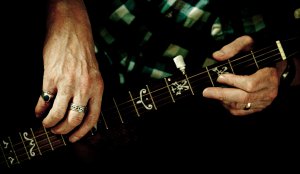 Do you spend a lot of time crafting
lyrics?
Do you spend a lot of time crafting
lyrics?
I think it's important they get played quite a bit because then they sort themselves out. Initially the idea is a single idea like 29 Diamonds or Precious Love and I'm Crying Too.
At that songwriting circle I wrote I'm Crying Too with a woman Victoria Bamford who doesn't play music, now but she was an incredible singer. We wrote that from the point of view of the person who had broken up the relationship saying to the other person that they got hurt too.
As a songwriter you can look at things from different perspectives.
It's a challenge when you see everyone does it one way so you should try to do it another way.
The spirits sometimes just give you a couple of words that evoke the rest of the song over time. I move words around, I steal them out of books, I read poetry, I particularly read pulp fiction and get ideas from there, people like James Lee Burke, those incredible crime writers . . . but the songs are all based on my own experiences.
When you've got the ideas in your head or even down on guitar do you know the arrangement or does the band offer ideas on how to do them?
By the time I've finished a song it's probably realised enough to play and then I start I thinking about the arrangements, but that's when the other players came in because their creative ideas are incredibly helpful. I can't tell a drummer what to play. Actually I can but it's, 'Keep it simple'. But what they do with that . . .
Chris O'Connore played on this and he puts a stick in his mouth and hits it with another by the microphone . . . I'd never think of that! And he's also the most incredible songwriter I've ever been around, so to be around someone creative like that just makes you as a songwriter a whole lot better.
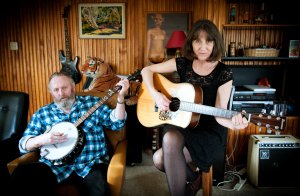 You said before about these are real
stories and you are writing what you know. Girl With the Golden Arm?
You said before about these are real
stories and you are writing what you know. Girl With the Golden Arm?
It's quite a story about this old friend of mine. I saw her last in 1980 in King's Cross and she was up to no good and neither was I. I got discreetly booted out of Australia and shortly after I met Kirsten (right) and my life started to settle down. My friends told me that the woman had died and it was likely that she had because she'd lived a dangerous life.
So I wrote that song about 15 years ago and the Grifters used to play it. I was in the process of recording and she turned up in Auckland! I used to name her in the song! She was still the same great, wild chick I knew then but she's been clean for nearly two years after being on methadone for nearly 30 years.
I should write a happy song about that, people reckon I don't write enough happy songs.
Well, McCartney said the world was full of silly love songs . . . and here's another. I like that Five River can take us to the past but you also mention Cuba Street in that murder ballad Burial Ground. Tell me about that song.
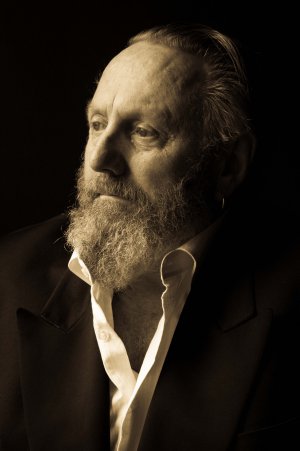 I love that song, it's one of my
favourite along with Circus Song. Because I'm such a twisted human
being I was think of those guys who had the farm down in Napier and
one of them murdered the brother-in-law . . . And there were two
beautiful women and I'm sure that would cause all sorts of chaos
living in a small community. And he was spray painting the sheds and
hurting the animals.
I love that song, it's one of my
favourite along with Circus Song. Because I'm such a twisted human
being I was think of those guys who had the farm down in Napier and
one of them murdered the brother-in-law . . . And there were two
beautiful women and I'm sure that would cause all sorts of chaos
living in a small community. And he was spray painting the sheds and
hurting the animals.
[He is referring to the 2010 murder of Scott Guy and the imprisonment of his brother-in-law Ewen Macdonald on charges of theft, damage and arson.]
I thought about that and thought, 'I could easily be like that about all these people that I've hated and who've done me wrong'. So as a cathartic exercise I wrote a song about killing everybody I've hated.
You should have listed them on the album cover.
Yeah. (laughs) But I wrote a song about it instead of doing it. I was abused by a priest when I was young and he's in the second verse but Mum and Dad didn't believe me. So the whole thing is about me killing everybody (laughs)
We can all put ourselves into that. What I love about the song Patti Smith is its directness saying 'this woman'.
I didn't write that, it's was by Chris Prendergast from Dunedin and he wrote it in '79. I rearranged it and I've been playing it for years so I had to put it on. Him and Richard [Holden] who is the other writer, they had a band called the Terls, kind of a surf-punk band while Flying Nun was going on. They weren't that highly respected at that time but when I heard them in Auckland I thought they were fucking great.
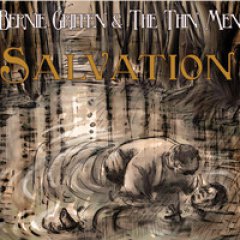 I love the grinding quality you
bring to it. I know this off on a tangent, but you've got striking
cover art.
I love the grinding quality you
bring to it. I know this off on a tangent, but you've got striking
cover art.
Yeah, Sarah Botur from Pukekohe. She's an artist and her husband Michael Botur is an incredible poet. If you get a chance to see him go. He just tells it like it is in South Auckland. He's a Pakeha and incredibly funny and articulate. She asked what I wanted and I said I wanted salvation, like a baptism scene . . . and that's what she came up with.
You always had that title in mind because that's how you felt?
Yeah, that was how I felt. It was the end of the Grifters and that's the way I feel about music and my life to a large extent, I've been blessed.
Well, I'm going to put a full transcript of this conversation up so people can read your words unfiltered by me, I think that's important. It's more honest that way.
That's how I live my life.

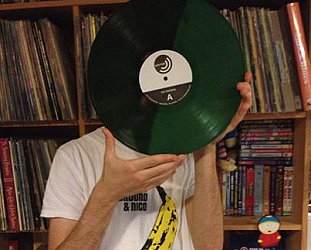
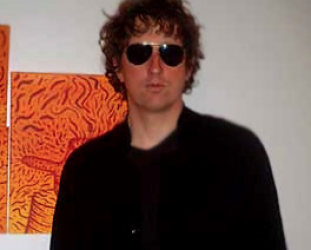
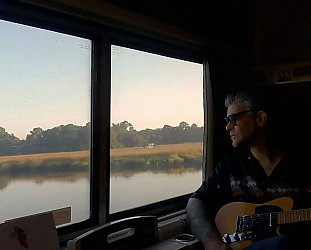
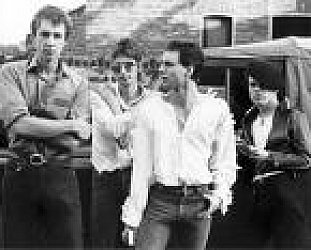
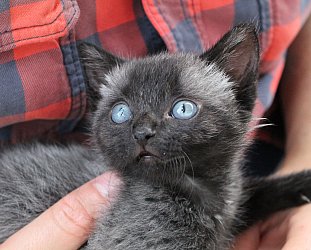

Kevin Byrt - Sep 25, 2014
Great interview Graham
Save. It's really important to have guys like Bernie around. They're a dying breed.
post a comment